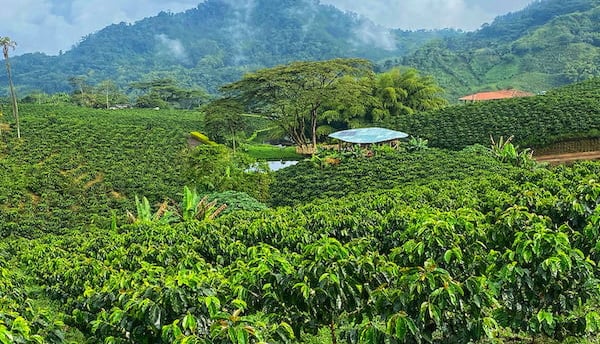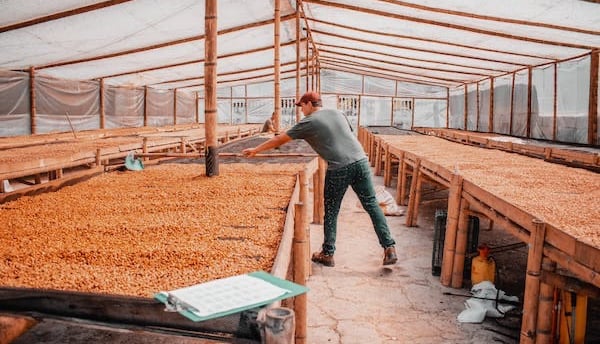COLOMBIA
Details about our coffee
Colombia is one of the world's leading producers of Arabica coffee, and over the years, the country has become synonymous with high-quality coffee. The country has nurtured its coffee industry over the years, and the spirit of innovation is strong; new coffee varieties and processing innovations have come from Colombia, as well as classic, balanced lots beloved by coffee drinkers.
Most of the country's coffee is grown by small producers scattered across its many coffee-growing regions. These coffee growers in rural Colombia have experienced decades of low-intensity political conflict between paramilitary groups, guerrilla groups, and the government, although a peace agreement approved in 2016 has made great strides in the peace and reconciliation process.
The 60-70 producers who contributed to this coffee lot live in the charming towns of Tesalia and Teruel. The Huila department borders Tolima and is the highest-producing region in the country. Huila boasts a chain of volcanoes, Nevado de Huila, which historically enriched the region's soils, creating ideal coffee-growing conditions. Huila has its own denomination of origin and produces coffees renowned for their bright acidity, balanced body, and rich sweetness.
Specialty coffee, a niche within the high-quality coffee industry, has taken strong roots in Colombia. It focuses on producing small batches of coffee with unique flavor profiles, reflecting the specific terroir of each region. Colombian specialty coffee producers place particular emphasis on processing methods, such as controlled fermentation and washing, to bring out the finest flavors in the coffee beans.
Furthermore, Colombia has become known for its "micro-lot" coffees, which are handpicked and harvested to ensure the highest quality. These micro-lots are often sold at international auctions and fetch premium prices due to their rarity and exceptional quality. Colombian specialty coffee producers often collaborate with cupping experts and roasters to refine and develop flavor profiles, ensuring that each cup offers an unforgettable sensory experience.
Regions such as Huila, Tolima, Nariño, and Cauca are internationally recognized for producing specialty coffee. Each of these regions offers unique growing conditions, influenced by altitude, climate, and soil, contributing to the diversity and complexity of the coffees produced. For example, coffees from Nariño are often praised for their tropical fruit notes and vibrant acidity, while coffees from Cauca may exhibit flavors of chocolate and citrus.
In conclusion, Colombia is not only a major coffee producer but also a leader in specialty coffee innovation and quality, offering coffee drinkers around the world a wide range of flavors and unique experiences.




